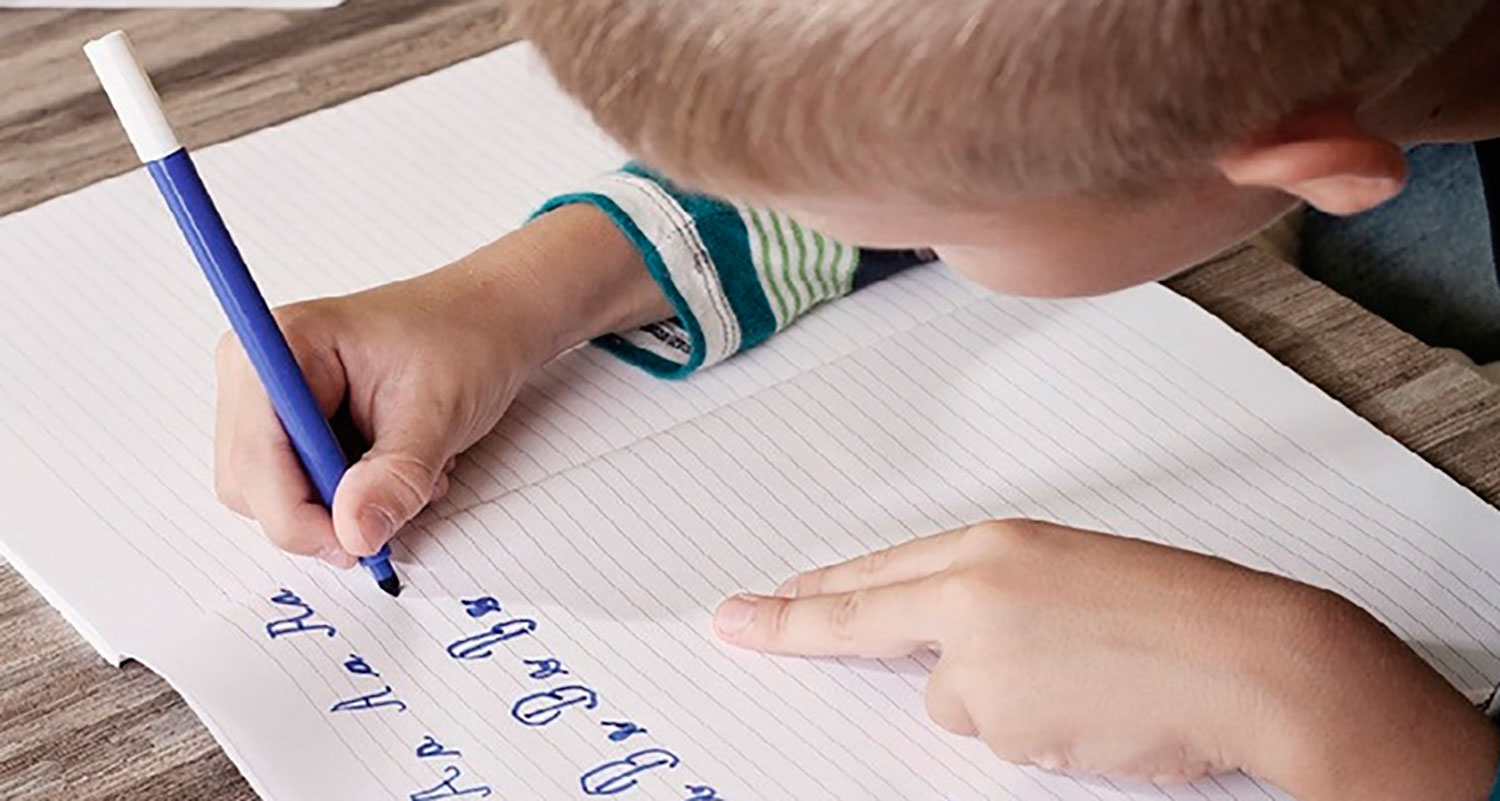The writing process is a skill that is learned throughout childhood. To acquire it correctly, it is necessary that previously a series of conditions that have a lot to do with the neurological, physical and emotional development of the child are met. Next, we will see what a child needs to learn to write correctly:
Speech is done naturally, writing on the contrary, is a more complex process, because learning the code of written language requires a certain maturity and intellectual development. This writing process usually begins around 4 or 5 years.
In order for a child to develop their own fine motor skills, they must have previously developed gross motor skills. The "motor" is the ability of people to generate voluntary movements, coordinated mainly by the cerebral cortex and regulated by the nervous system and the senses. Thus, writing always begins with gross motor skills (more clumsy, broad and less defined movements) and concludes with fine motor skills (faster, controlled and precise movements).
<center></center>
Naturally, not all children advance in the same way in the learning of writing, it will depend on many factors:
NEUROPHYSIOLOGICAL FACTORS (RELATED TO THE BRAIN AND WITH THE BODY)
· Have a good sensory development
· Have a good muscular development
· Have a good coordination
· Have the ability to correctly handle different instruments (pencil, paints, notebook, eraser ...)
· Have a stable manual laterality
COGNITIVE FACTORS (CAPACITY TO PROCESS INFORMATION FROM THE PERCEPTION)
· Have a good cognitive development (attention, planning, memory, inhibition of stimuli ...)
· Have a good capacity for discrimination (differentiation)
· Have a good perceptive-motor coordination
· Have a good visual-spatial orientation
· Have a good visual memory capacity
· Have a linguistic maturity
SOCIO-EMOTIONAL FACTORS (RELATED TO EMOTIONAL EQUILIBRIUM AND THE RELATIONSHIP WITH ITS ENVIRONMENT)
· Self-confidence
· Emotional maturity
· Interactive environments favoring communication
· The use of unsuitable instruments such as excessively long pencils, cylindrical or thick, can cause writing disorders.
TIPS FOR EFFECTIVE WRITING
As we have said, writing is a process in which slowly the child improves and optimizes his / her ability, therefore, it is important to consider the following tips in order to help them in their learning:
• Encourage a relaxed and calm atmosphere.
• Draw on different supports and with different materials (with flour or sand, finger paint ...)
• Teach the child to pick up the pencil correctly, to hold it properly between the fingers and to slide it on the paper.
• Do not put pressure on the child, be aware that each child has their own rhythm.
• Vary and complement the type of writing: paint, draw, cut out, make hobbies such as labyrinths, join points or numbers.
• Work the vertical, horizontal, oblique, circular, zig-zag strokes.
----------------------------
<center></center>
 hiveblocks
hiveblocks